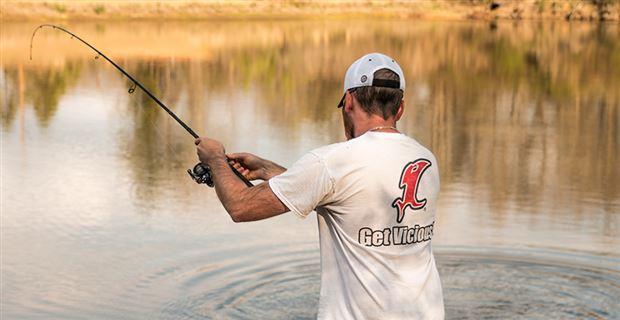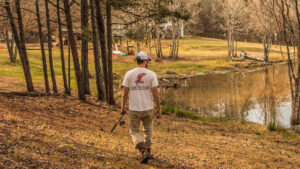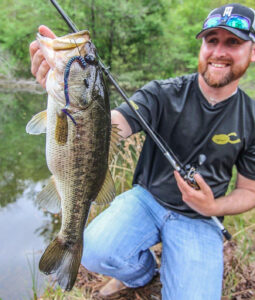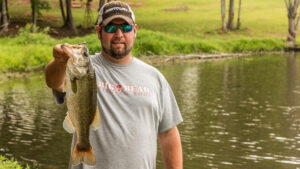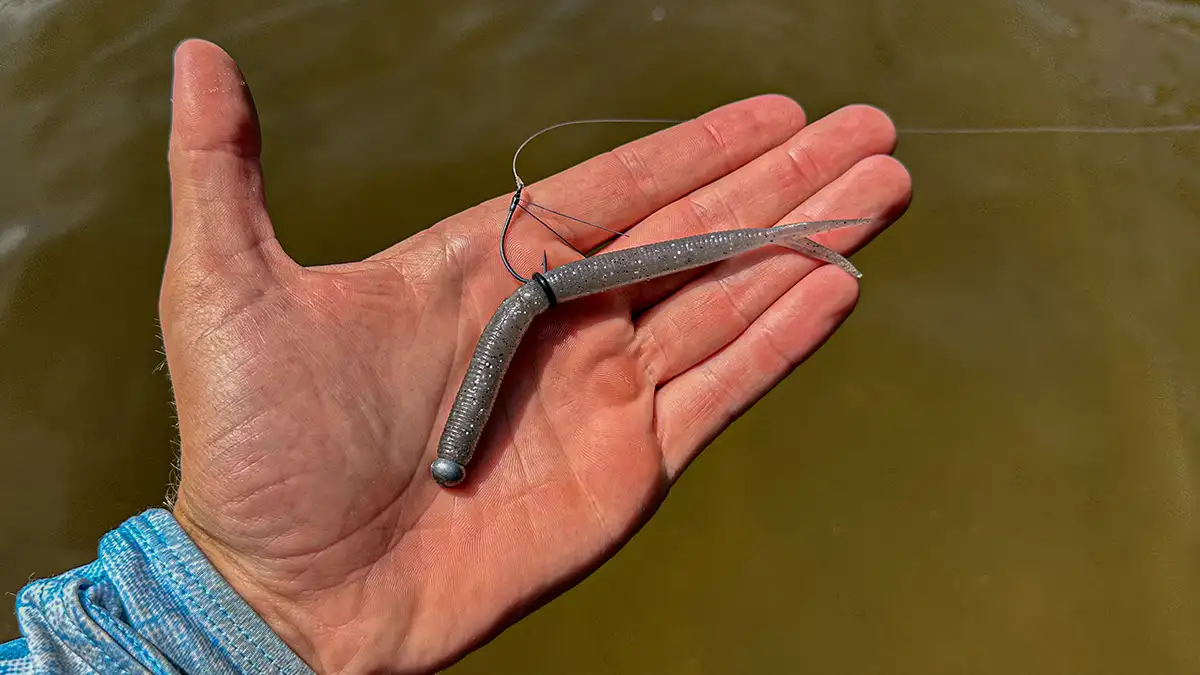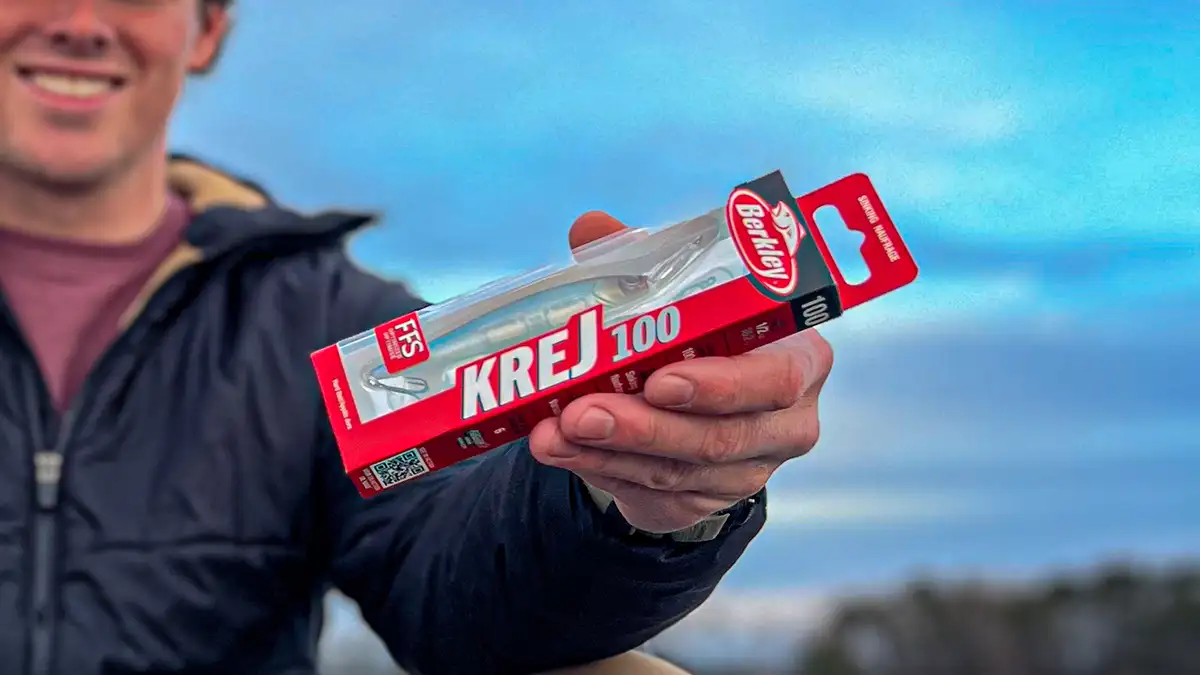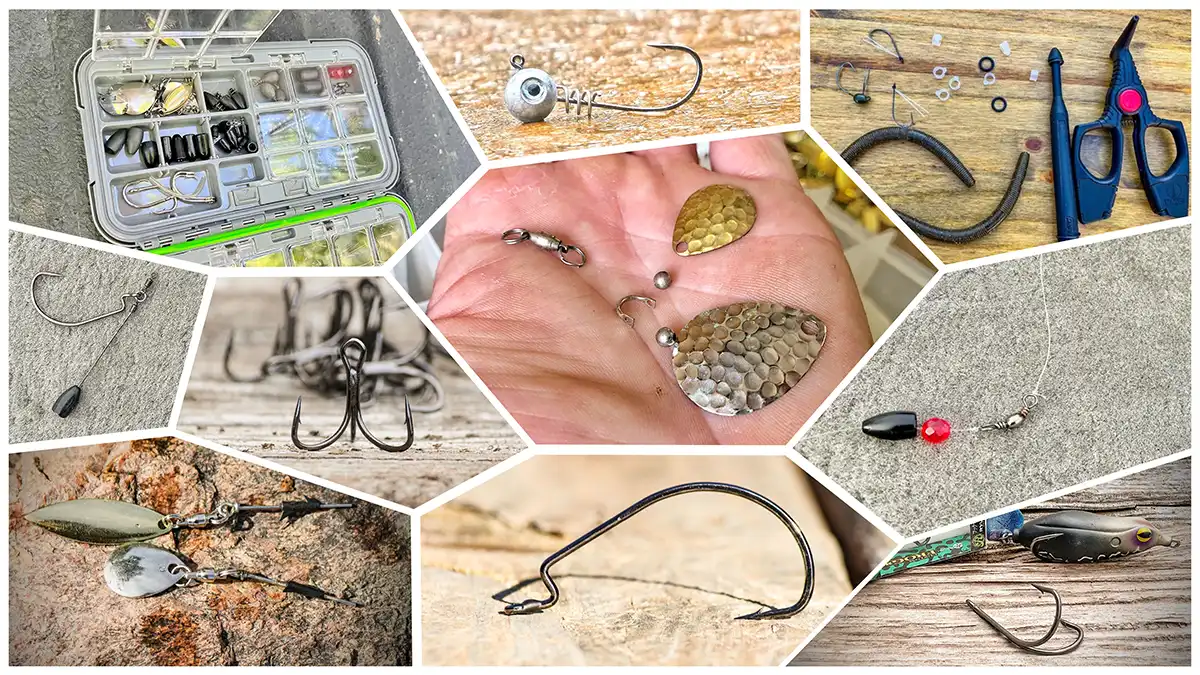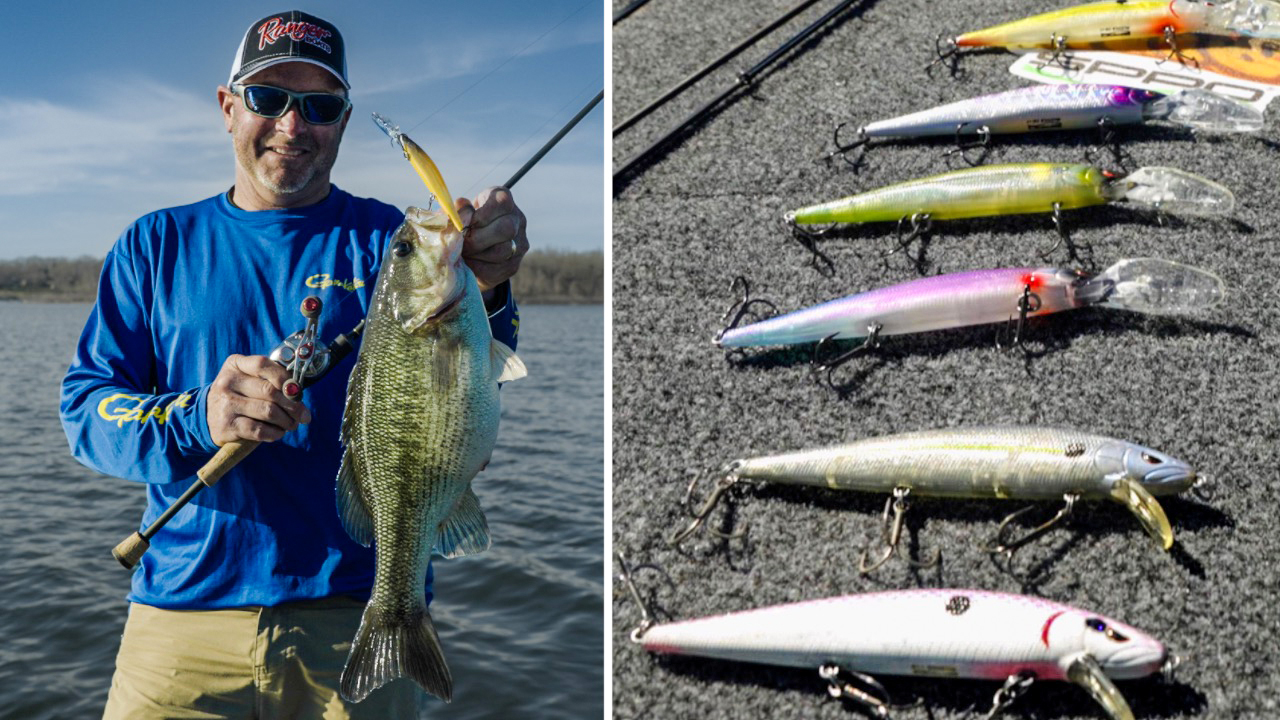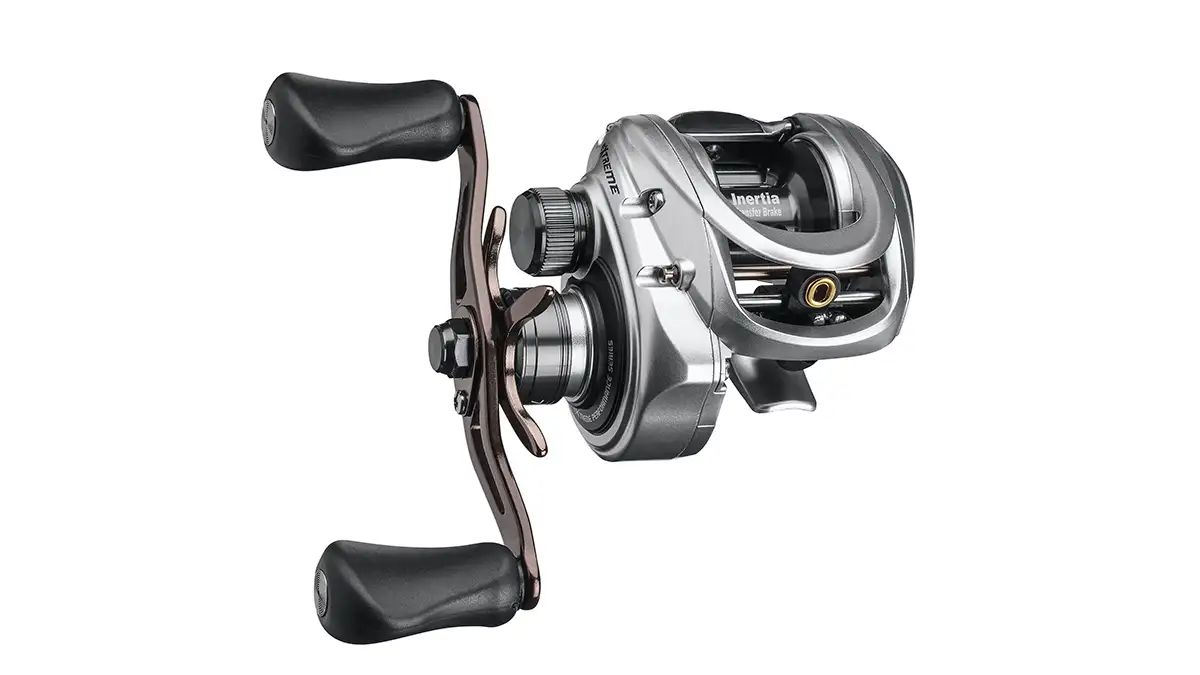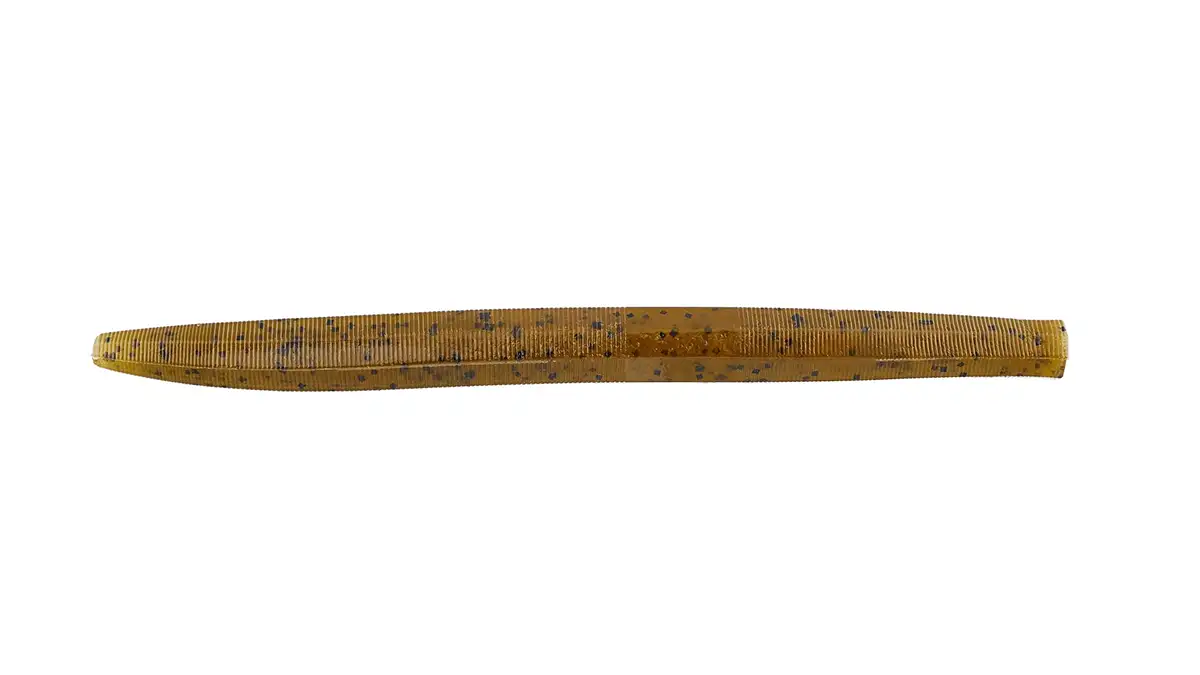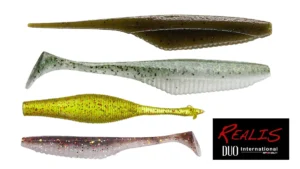You don’t need an expensive boat to experience some of the best bass fishing in the country. An old pair of boots and a backpack full of tackle are the only things standing between you and unmolested waters full of big fish opportunities. It’s fishing in its purest form, in my opinion.
But don’t be fooled, though: There are still several things to consider if you’re aiming to maximize your success on each bank fishing trip.
No. 1: Lack of stealth
You’ll have a tough time catching fish if you sound like a herd of Clydesdales walking down the bank. Especially on smaller bodies of water, you run the risk of spooking bass long before you’re even within casting distance of them.
Case in point: I fish a lot of ponds throughout the week—it allows me to scratch the itch when I’m short on time without fooling with my boat. When I pull up to these ponds in my truck, I’ll often see bass swirling when my truck is still 75 yards away from the shoreline. They can feel the vibrations and they know something isn’t quite right; so they vacate the shallows in favor of deeper and safer water. Once these bass are alerted to my presence, they become much tougher to catch.
In order to stay covert in your bank fishing endeavors, approach each movement like you’re hunting. Don’t drag your feet or stomp around. Don’t yell across the pond to your fishing buddy and even though it can be tough, try not to hoot and holler when you catch a nice fish. It might sound mildly insane, but it will help you catch a lot more fish. I’m sure of it.
Stealthiness can also be achieved by keeping a healthy distance from the water when casting or moving to another spot. You’ll rarely see me standing within 10 feet of the shoreline. It can make for some awkward casts at times, but the element of surprise is paramount when you’re trying to fool skiddish bass.
I also believe in stealthy lure presentations—particularly when I’m fishing small ponds that don’t receive much fishing pressure. I’ll often cast a subtle bait, such as a floating worm or wacky rig, before I try my hand with buzzbaits and other noisy topwater lures. I want to catch the fish off-guard and the more natural and less threatening my presentation is, the better my chances of tricking a trophy-class bass.
Here’s the bottom line: If a bass knows you’re there, your chances of catching it are dramatically decreased. You’ve put yourself at a major disadvantage from the start.
No. 2: Poor casting angles
It’s funny how anglers (myself included) work. The bank fishermen always want to cast away from the bank and the boat fisherman always want to cast towards the bank. Sounds backwards, doesn’t it? I guess we all want what we can’t have.
Making 45-degree casts from shore is a great way to dial-in on the most productive depth zone on any given day. If you cast straight towards the middle, your bait is in each depth zone for a very short period of time. These angled casts, however, maximize your time at specific depths and allow you to quickly learn where and how the bass are positioned.
These casts are especially productive when you’re fishing a pond or lake with very little shoreline cover. In these situations, bass don’t have many options, so they’ll often position on subtle break lines (click here for an entire article explaining them). Break lines offer travel routes for smaller prey and easy acclimation for weather fronts.
Here’s the bottom line: Instead of making Happy Gilmore-esque casts into the middle of nowhere, target specific depth ranges with each cast. Think of it as a grid-system during a search and rescue mission. When you get a bite, you can pattern the depth zone much like you would on a larger fishery.
No. 3: Pack mule syndrome
It’s temping to bring 20 pounds of tackle and five rods with you, but please read this next sentence carefully: It is not necessary. I often use a three-worm bank fishing system that allows me to keep everything in the pockets of my blue jeans. You can learn all about that system here.
There’s nothing wrong with being prepared and if you feel inclined to haul a bunch of tackle around, that’s absolutely fine. But I’m a strong believer that too much gear severely inhibits mobility. And mobility is one of the biggest keys to bank fishing success.
If you just lugged your big tackle bag down the bank, laid out all of your rods and you’re still not catching fish, you’re less apt to relocate to another area. Nine times out of 10, if you’re catching fish while bank fishing, you’re not around fish—and the only solution is to move. Too much gear can make you lazy, in a sense.
Here’s the bottom line: Pack lightly. If you’re not sure what they’ll be eating that day, try using a backpack that will hold a few 3700-size tackle trays. Anything that helps you stay mobile and light on your feet is a winner. Keep moving until you find fish.
No. 4: Robot mode
You’re not always going to catch ‘em hot and heavy. I wish that weren’t the case, but this is real life and fish don’t always cooperate. When the fishing gets slow, we’re all guilty of zoning out and not paying attention. Before you know it, you get a bite and have no idea what you were doing and where your bait was.
You might catch the fish, but you have very little chance of building upon that success.
Bank fishermen don’t always have full coverage of the entire lake or pond due to topography, property lines or whatever else. So paying very careful attention to each and every bite, rough spot, or bottom composition change can be the difference between a horrible day and a great day.
Real-life example: I took a guiding buddy out to a pond a few days ago to kill a few hours. He was casting a big, Texas-rigged worm at a 45-degree angle like I discussed earlier. He’s a very intense and focused guy, so he was making the same cast—over and over again—to a very specific spot in about 12 feet of water. He found one twig the size of a baseball bat laying on the bottom of the lake and he caught four bass weighing three pounds or more from that tiny little piece of cover. We hadn’t had a bite for the last 30 minutes.
If he wasn’t paying attention, he would have never known it was there—and he would have never caught a single one of those big bass.


